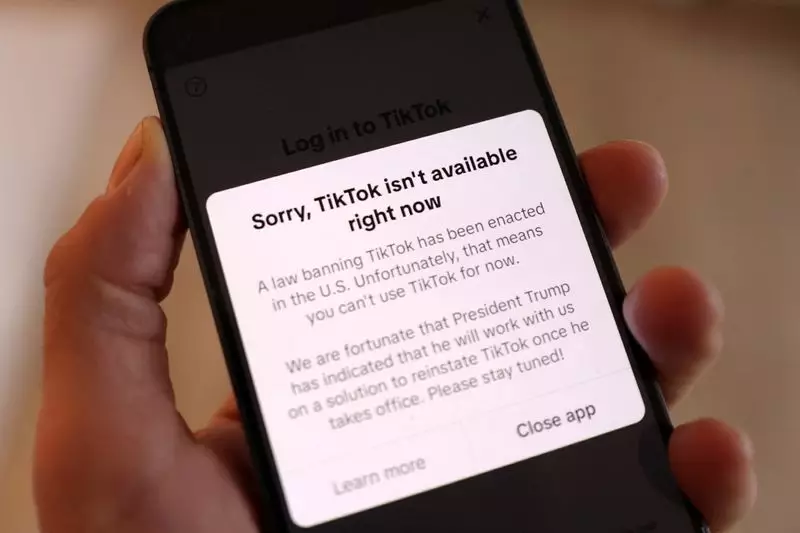In recent developments, TikTok, the popular social media platform known for its engaging and entertaining short videos, remains inaccessible through the app stores of major tech giants, Apple and Google, in the United States. This situation unfolded after President Donald Trump enacted an executive order designed to delay the enforcement of a potential ban on TikTok for 75 days. This came directly after a controversial law was set to take effect, which mandated that the app’s Chinese parent company, ByteDance, either divest its U.S. operations or face a complete ban within American borders. The legal landscape surrounding TikTok has fueled significant uncertainties, leading to confusion among users and stakeholders alike.
Temporary Respite Amid Uncertainty
The disruptions to TikTok services initially stemmed from a precautionary measure taken by the app after the government’s actions on Saturday. Despite receiving assurances from President Trump regarding the absence of substantial penalties for TikTok and its operational affiliates, the app was still conspicuously missing from the digital shelves of Apple’s App Store and Google Play. The lack of availability signals deeper concerns from these tech companies, which seem to be anticipating additional legal protections before potentially lifting their restrictions on the app. Notably, both platforms have made statements underscoring the pause in app distribution, citing “current U.S. legal requirements” as the primary cause for this ongoing inaccessibility.
In the background of this unfolding drama, former U.S. Treasury Secretary Steven Mnuchin has revealed that he has temporarily halted his planned bid for TikTok. Mnuchin attributed this pause to a lack of willingness from the Chinese side to engage in negotiations that could facilitate the sale. He still expresses interest in the app, asserting his desire to reconfigure its technological framework to sever ties with ByteDance going forward. The rhetoric surrounding TikTok’s ownership continues to evolve, with Mnuchin and his partners aiming for a complete transfer of technology to ensure that it no longer associates with its Chinese roots.
Bill Ford, the CEO of General Atlantic, a significant investor in TikTok, also offered insights, indicating that there are alternative pathways to navigate the ownership changes that wouldn’t necessarily involve a sale. According to Ford, TikTok’s ownership structure already reflects a considerable amount of foreign investment, with approximately 60% of ByteDance owned by institutions such as BlackRock and General Atlantic. This fragmentation can serve as an asset in negotiating a solution that satisfies regulatory concerns while maintaining the app’s operational viability within the U.S. market.
As the clock ticks on the 75-day reprieve granted by President Trump, stakeholders are left in a state of apprehension regarding TikTok’s fate in the United States. The interplay between national security concerns, legal requirements, and corporate interests presents a complex scenario that may impact millions of users. The outcome of these negotiations and potential restructurings will not only determine TikTok’s operational future but could also set precedents for the way foreign-owned tech companies engage in the U.S. market going forward. The coming weeks will be crucial for TikTok as it navigates this precarious legal landscape while striving to maintain its popularity and user engagement in a competitive digital environment.

